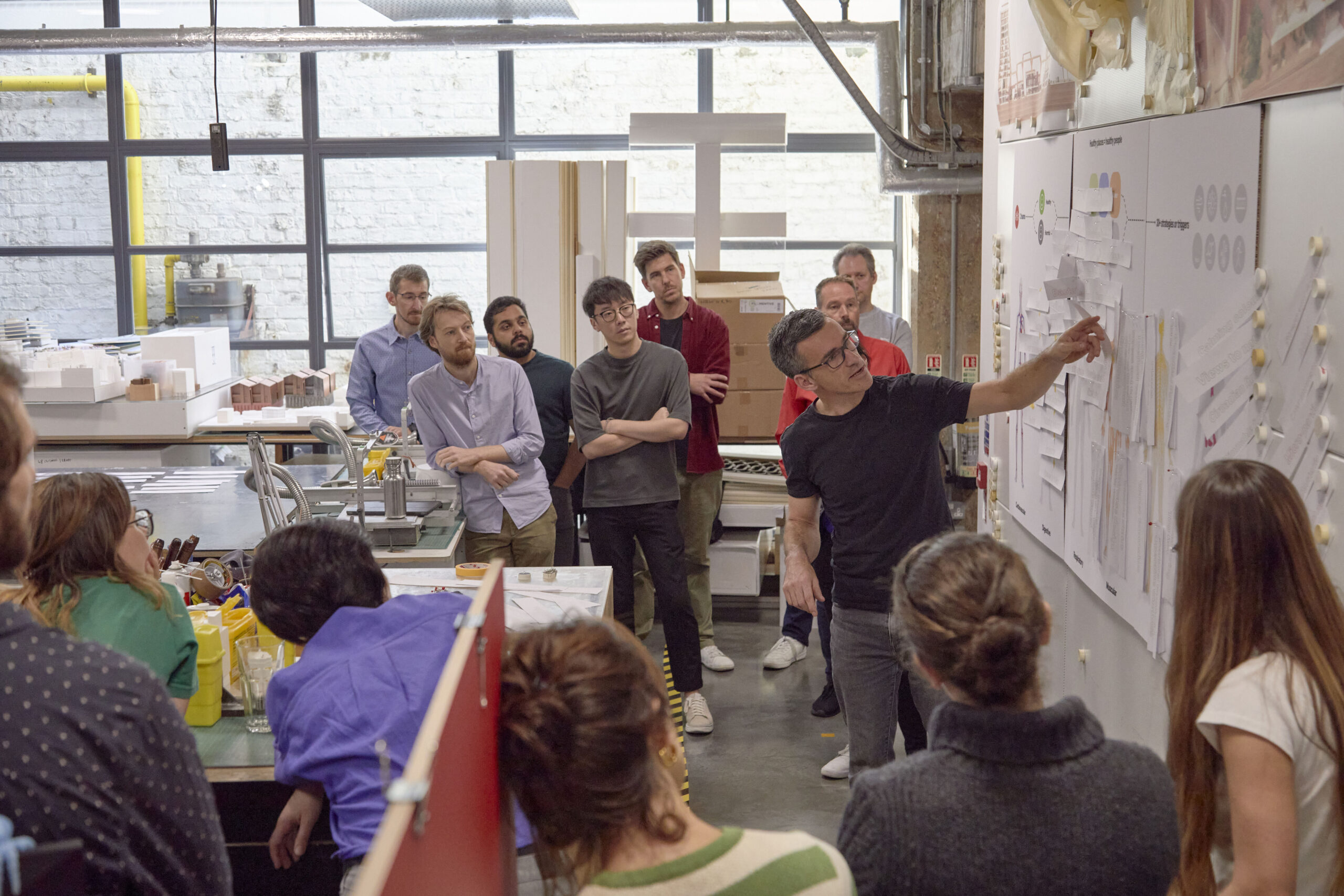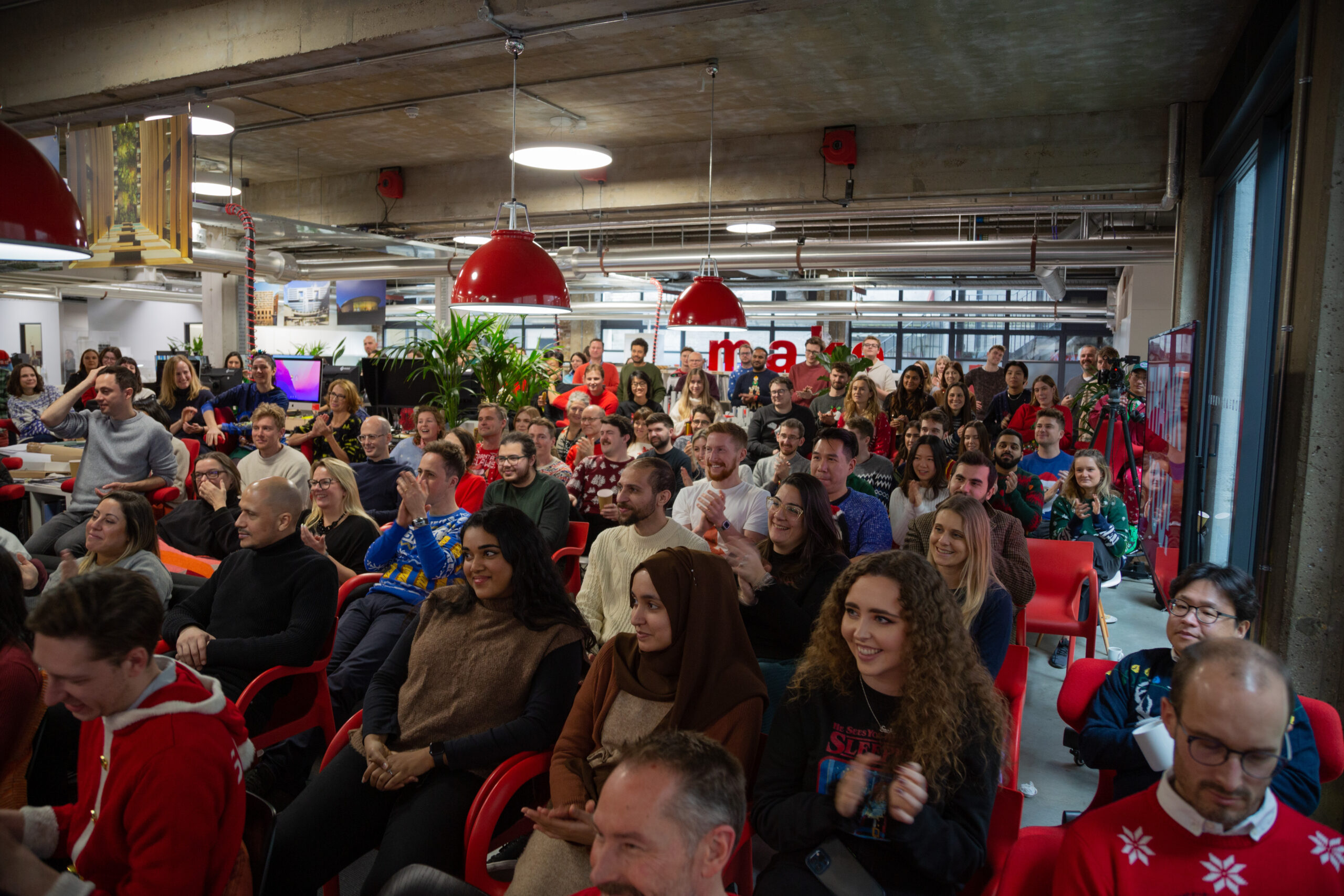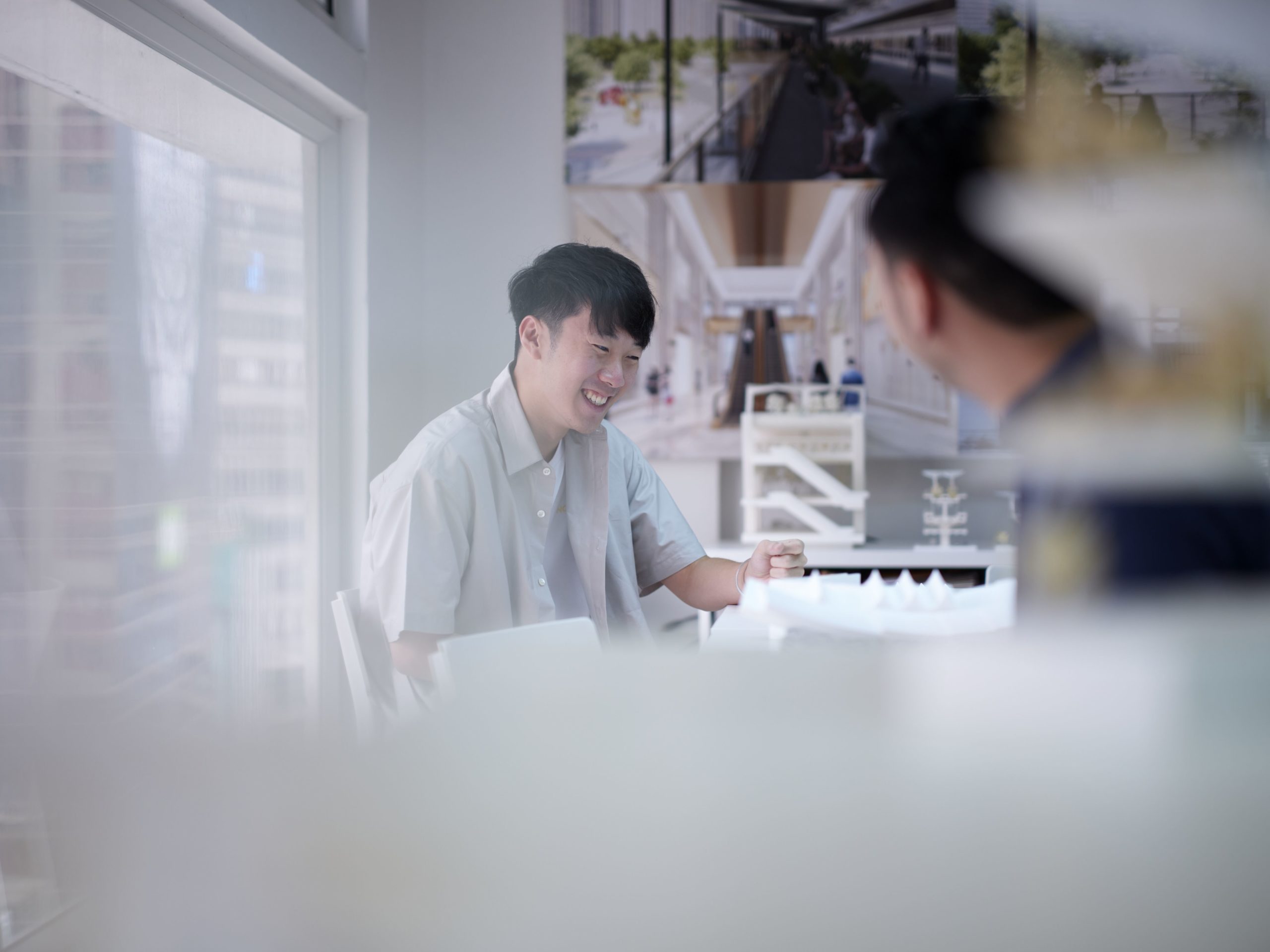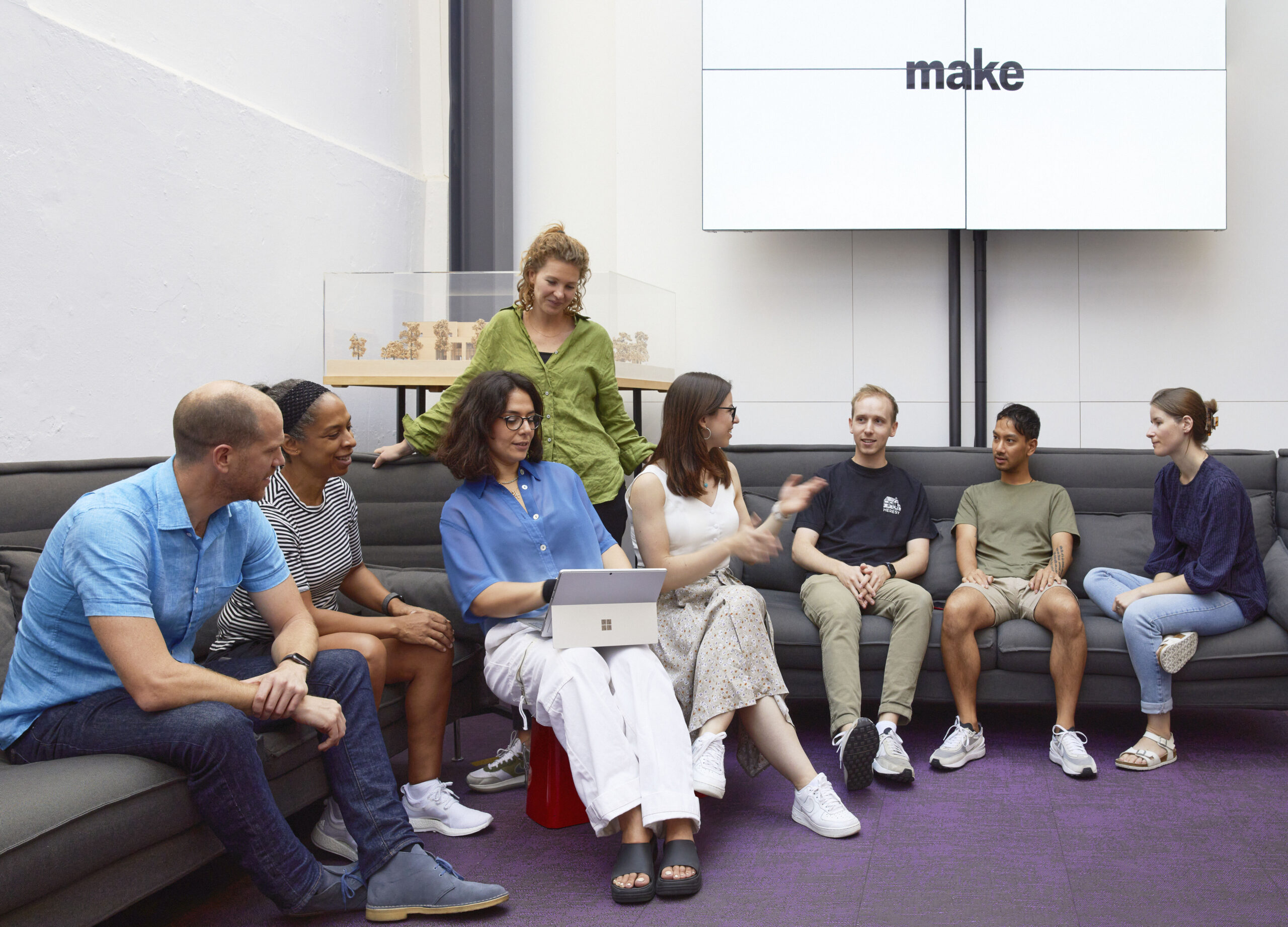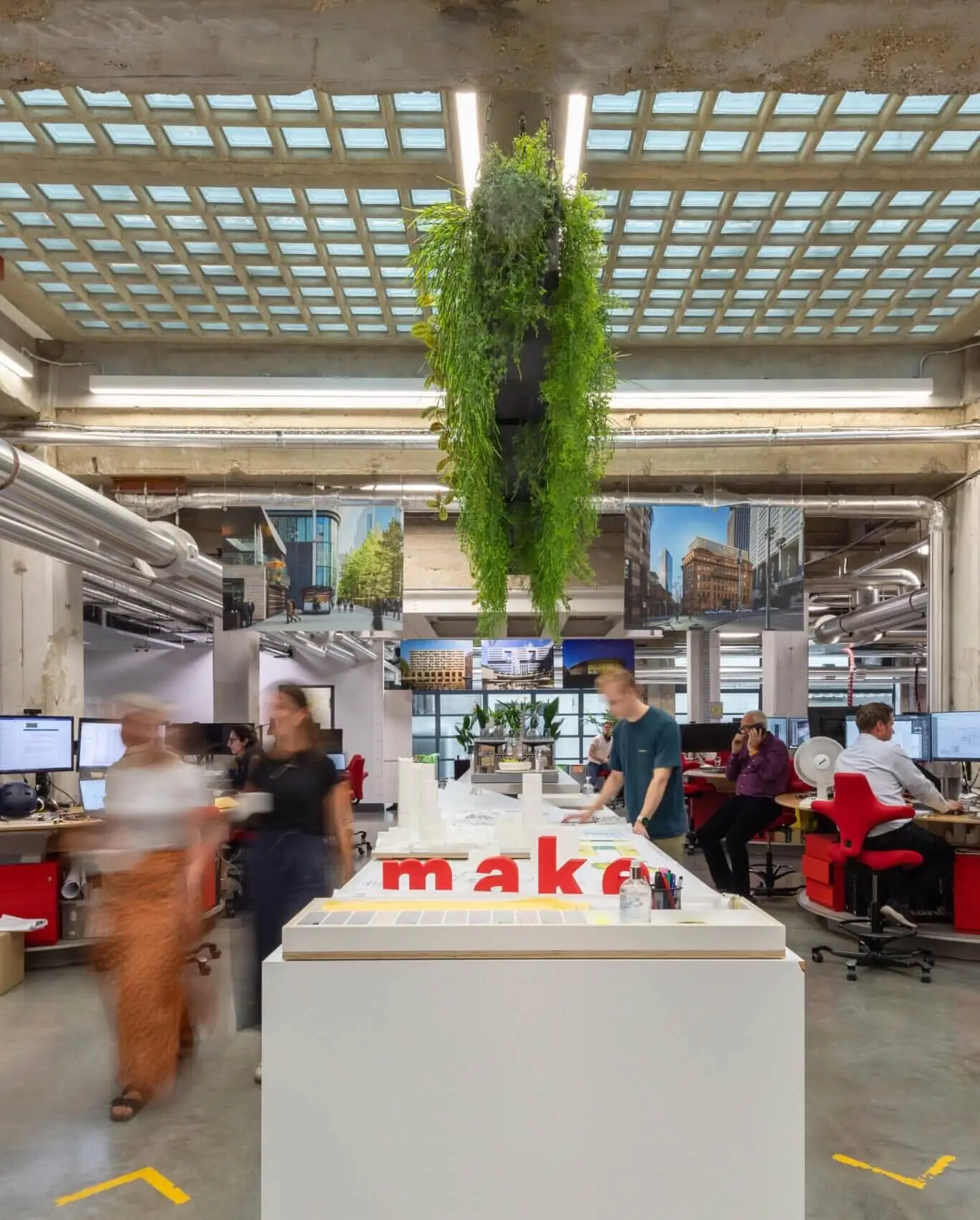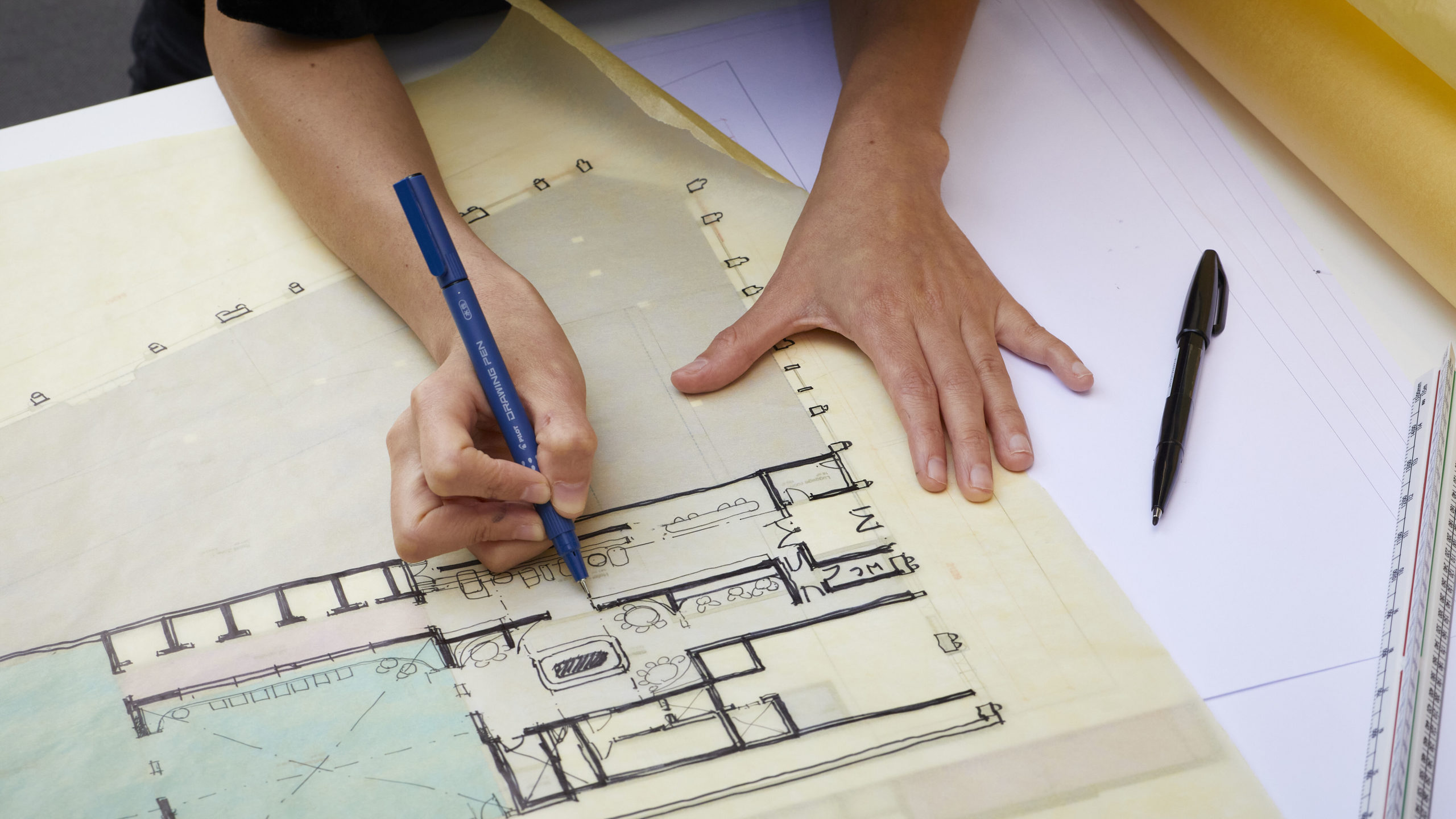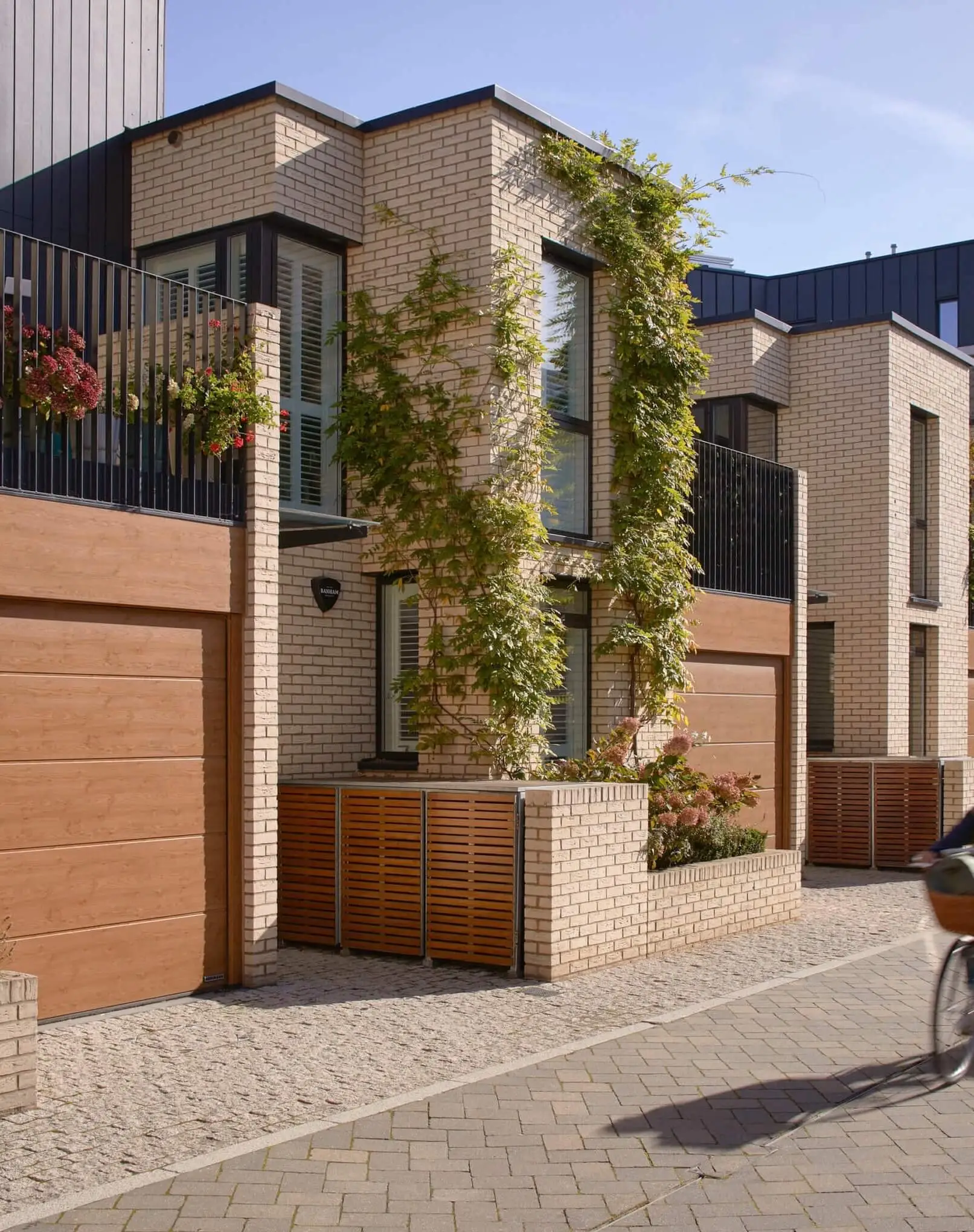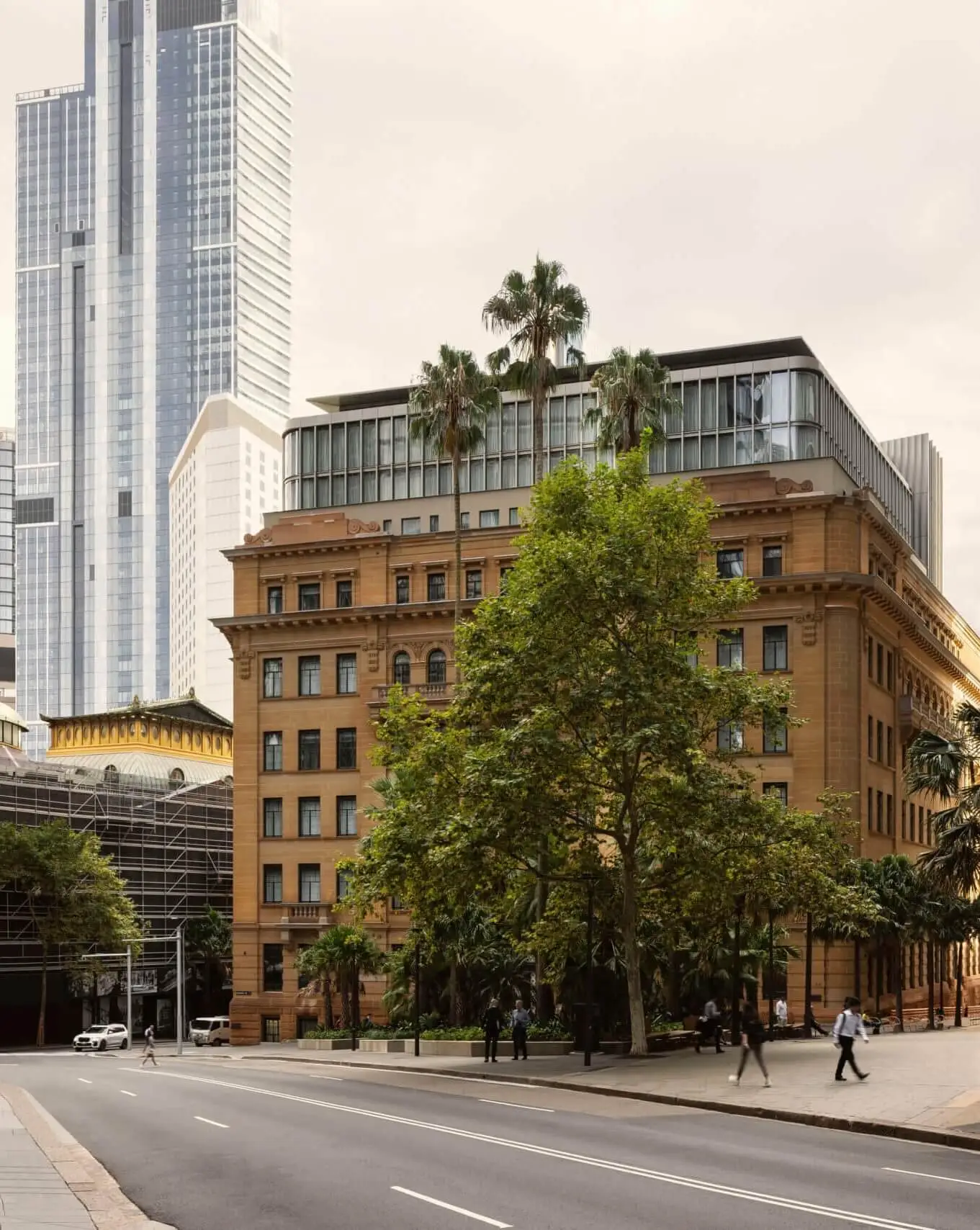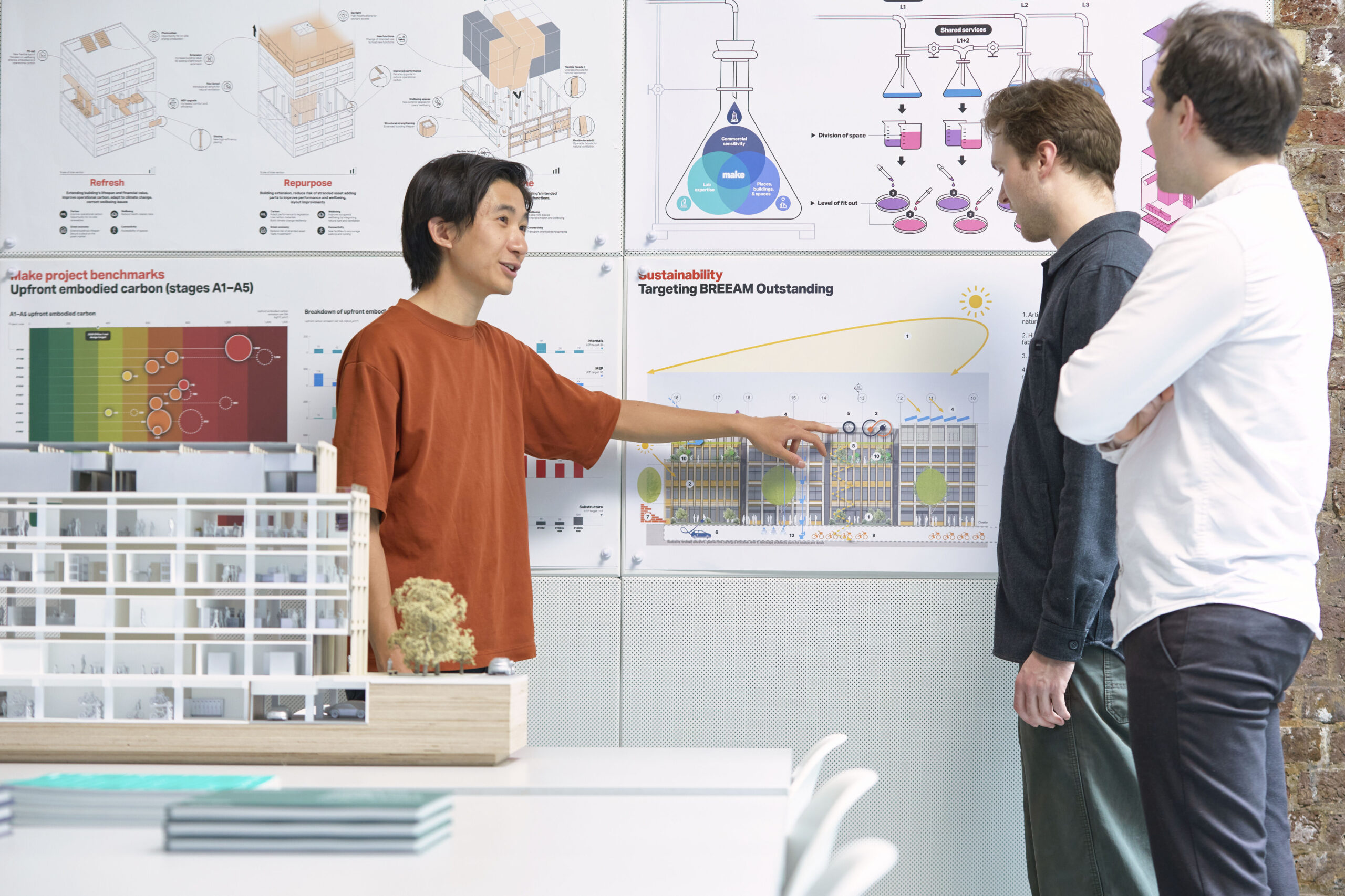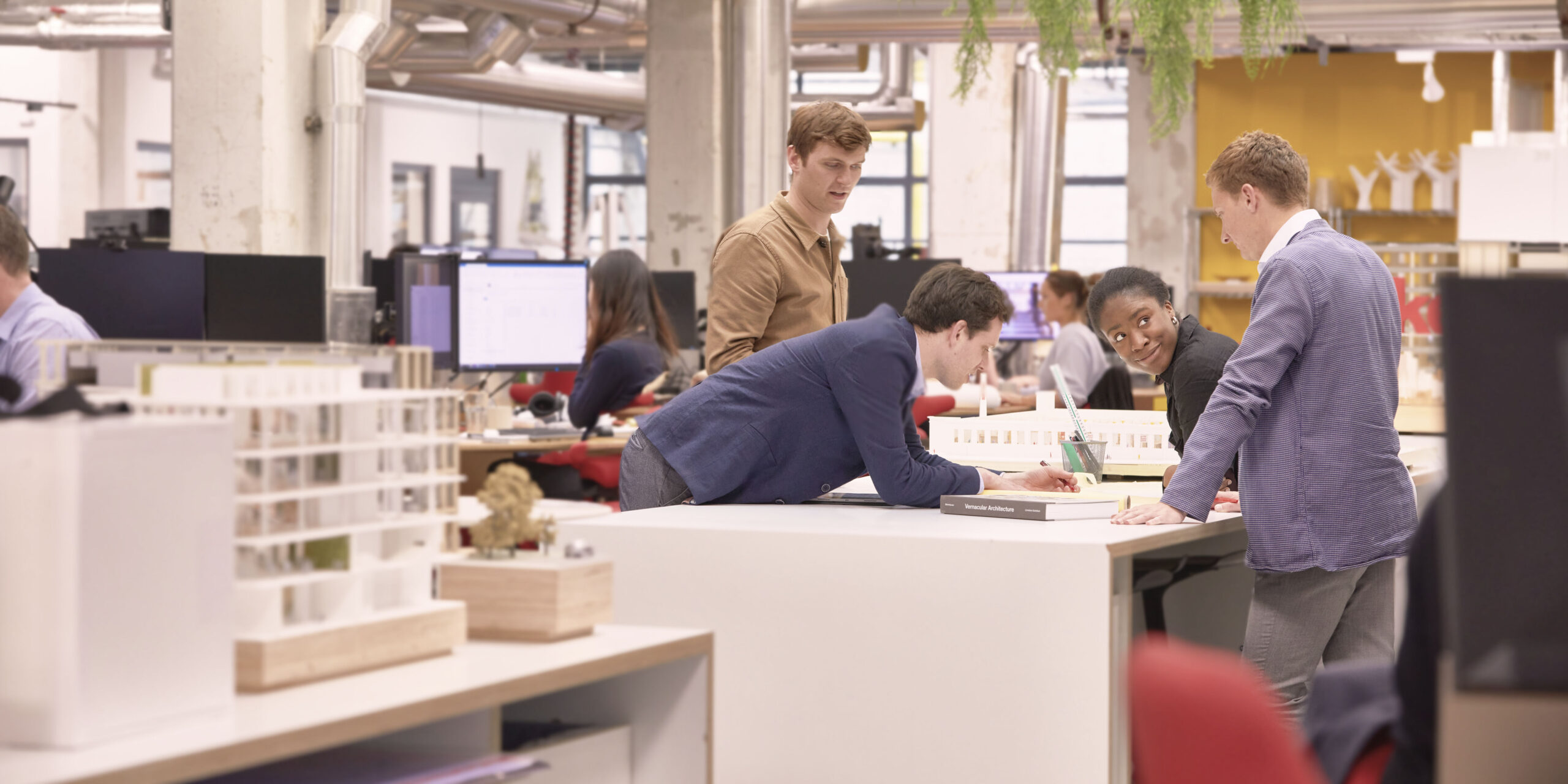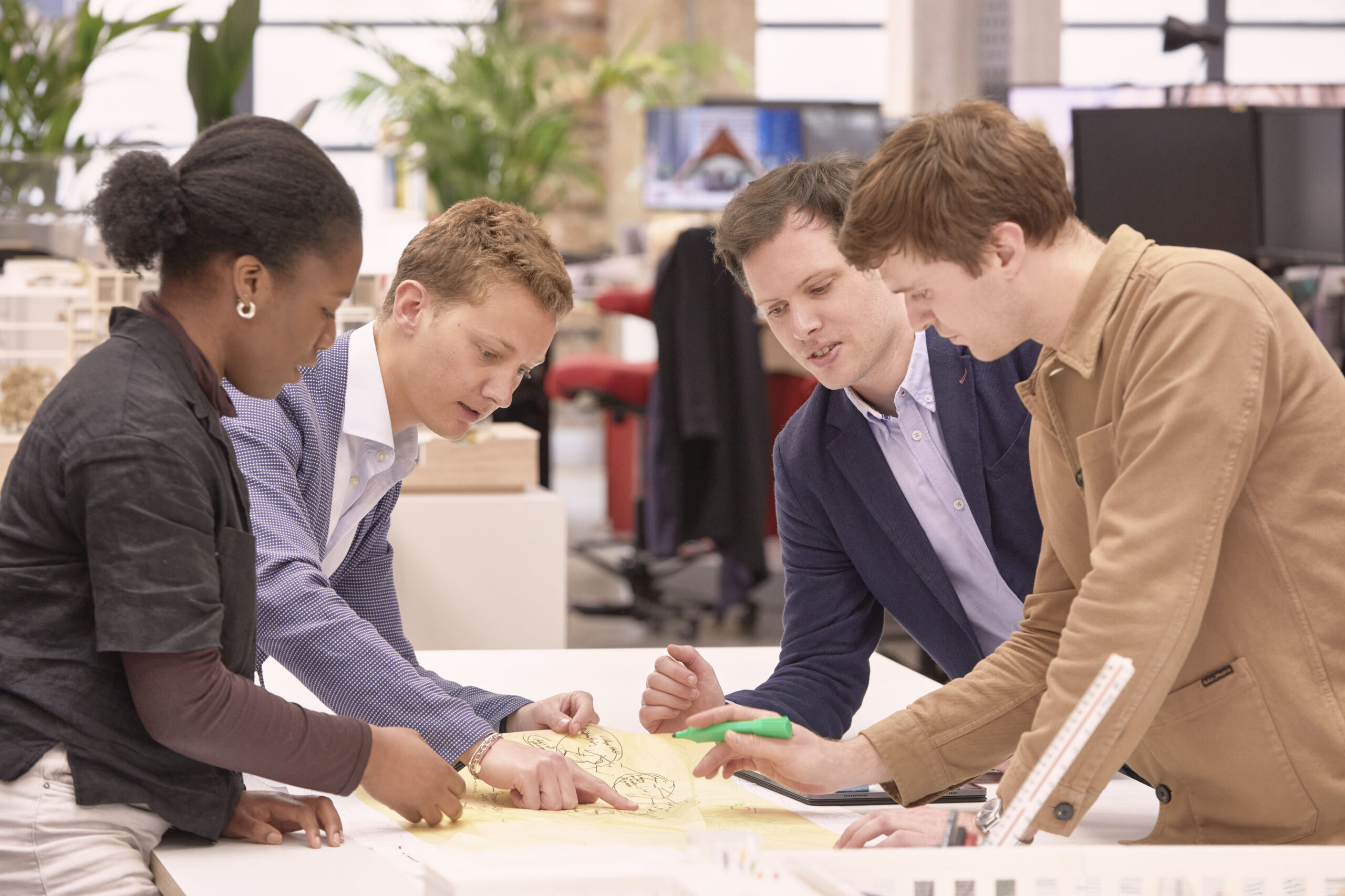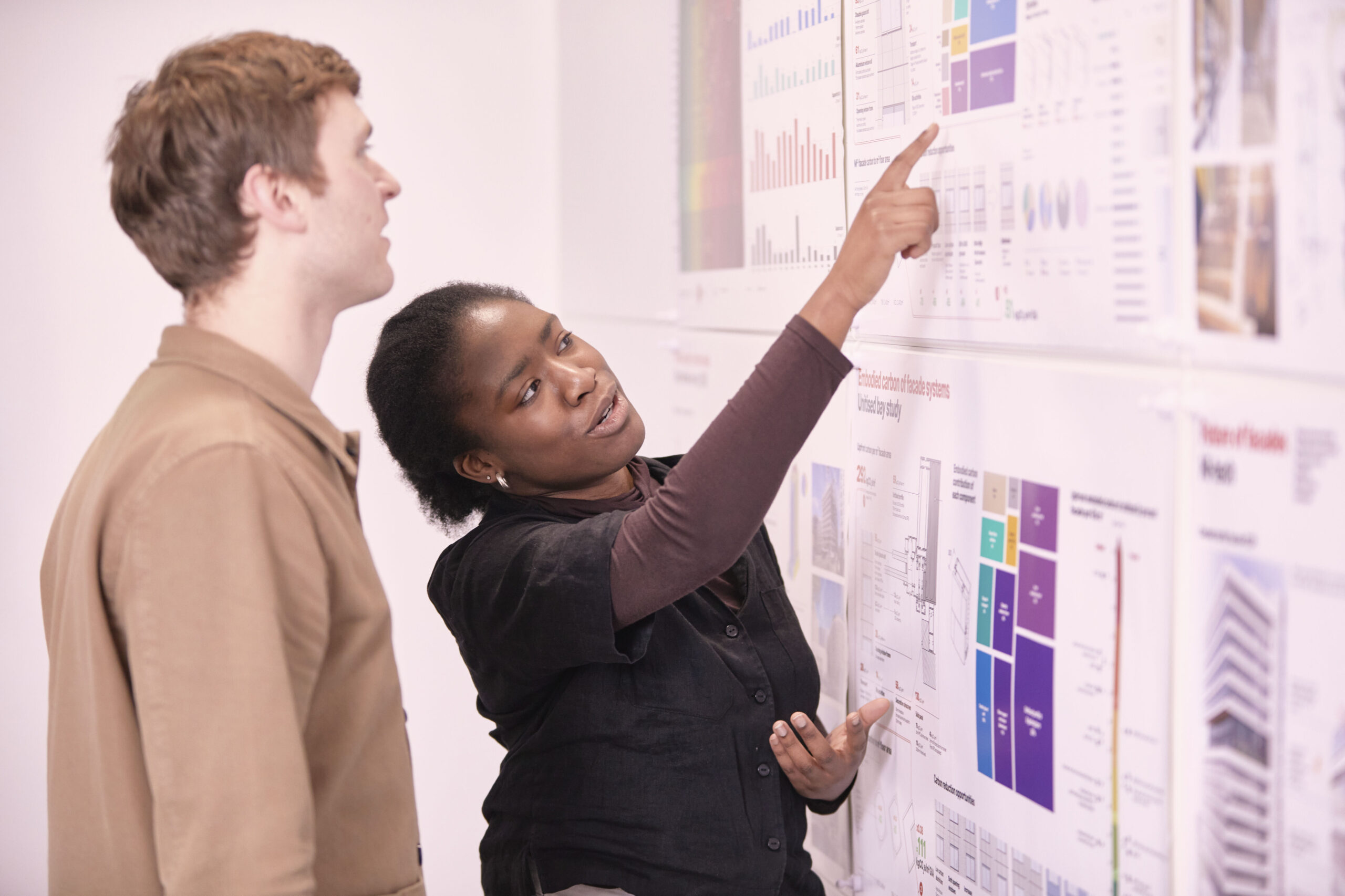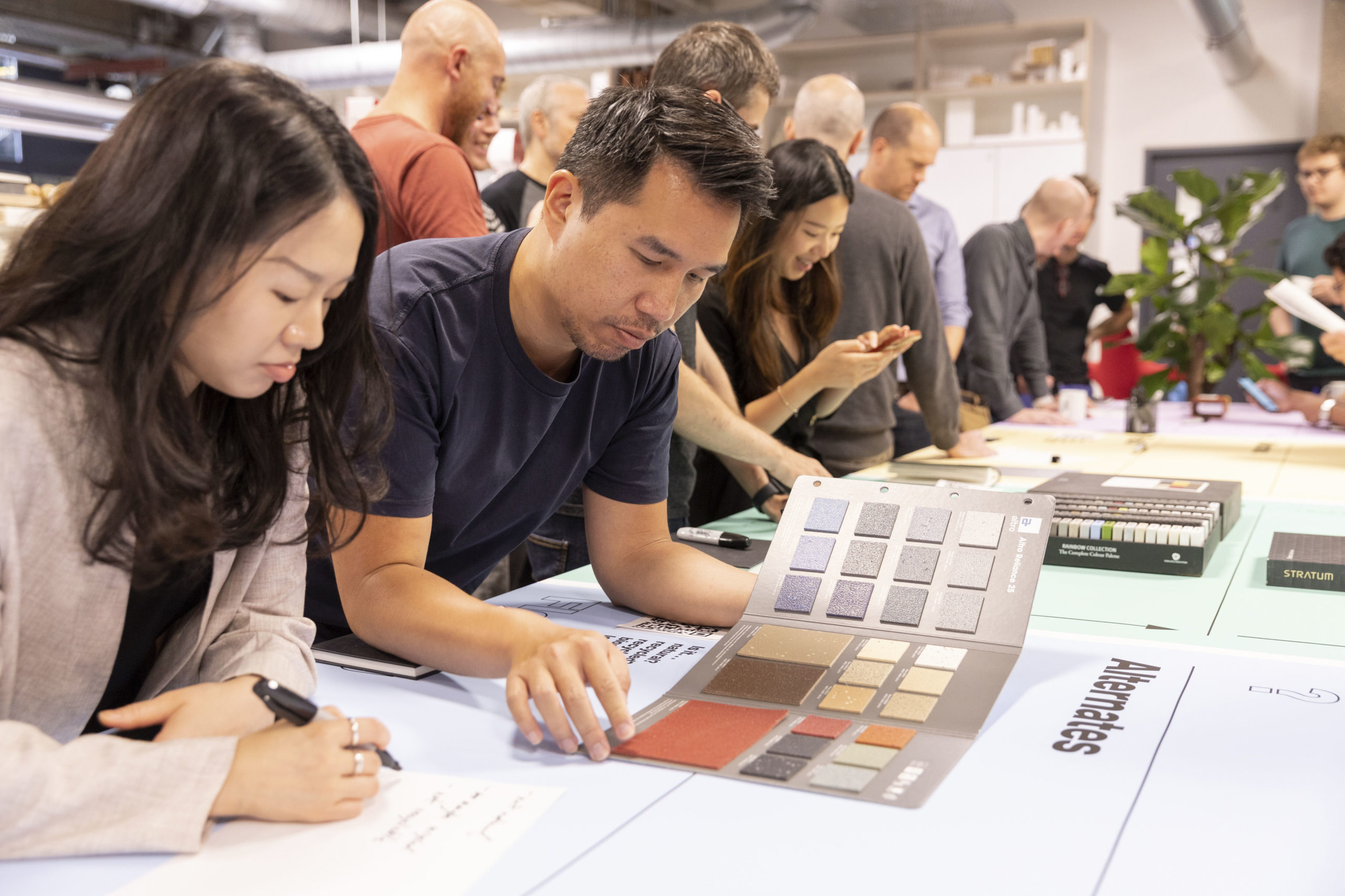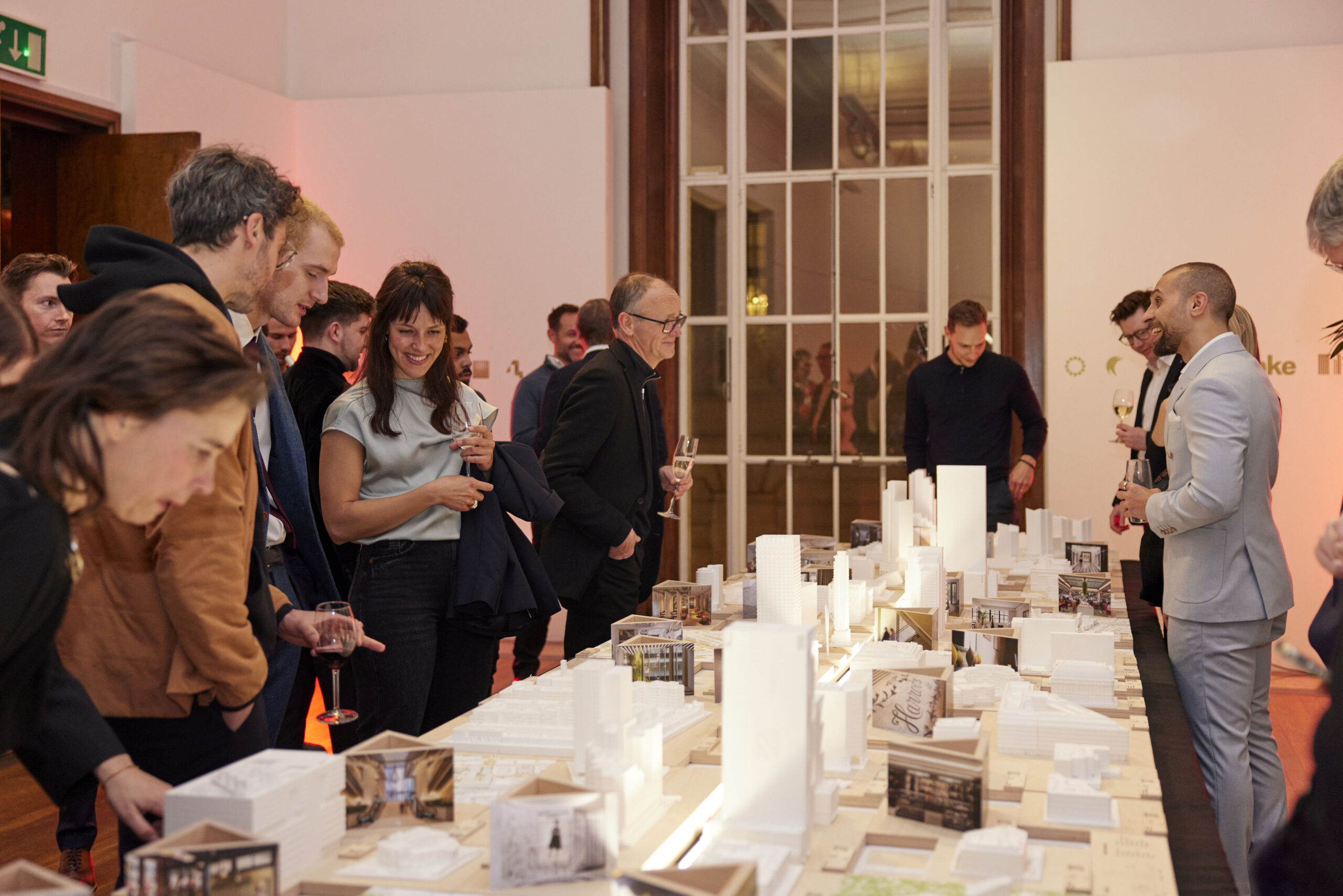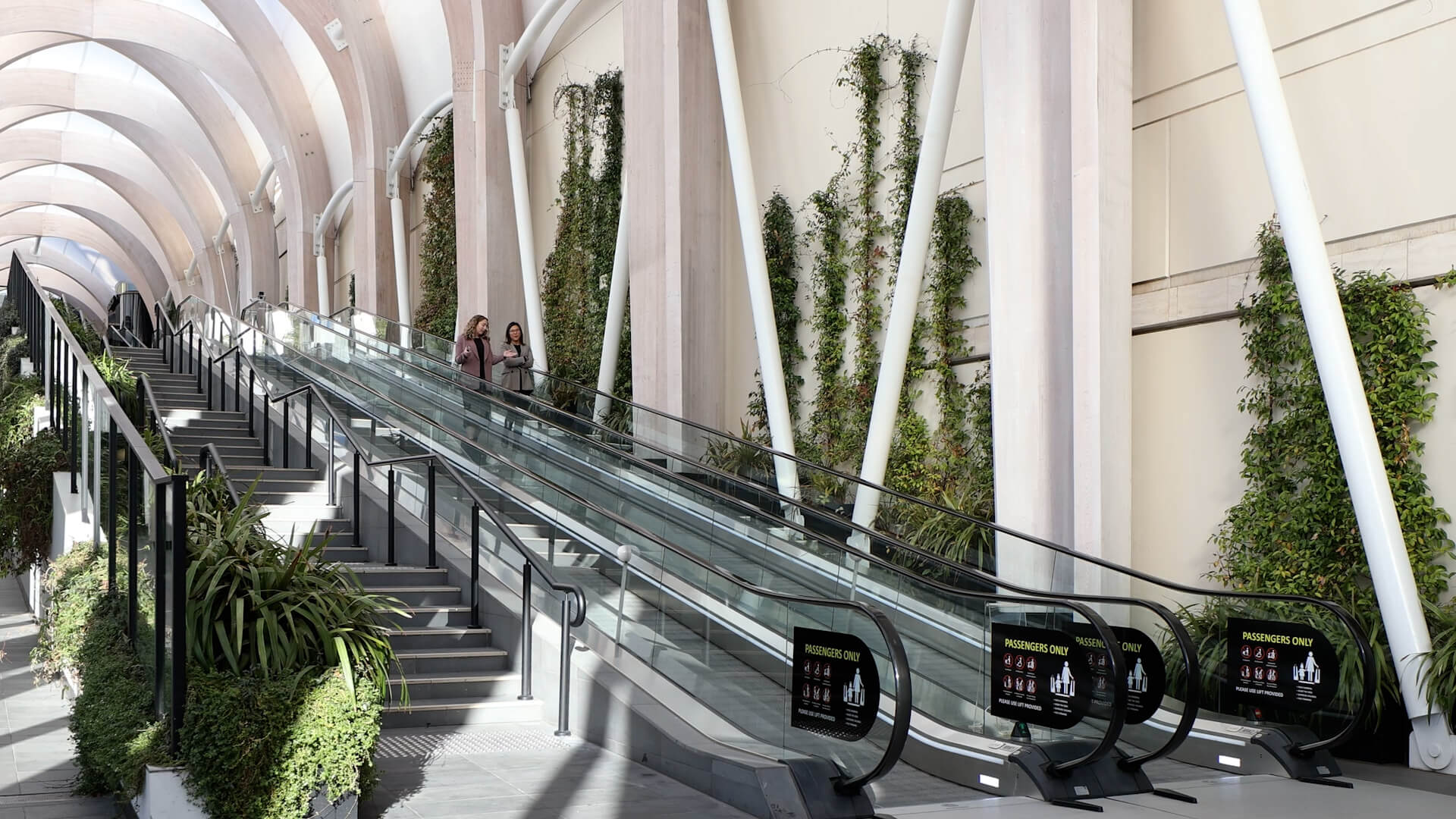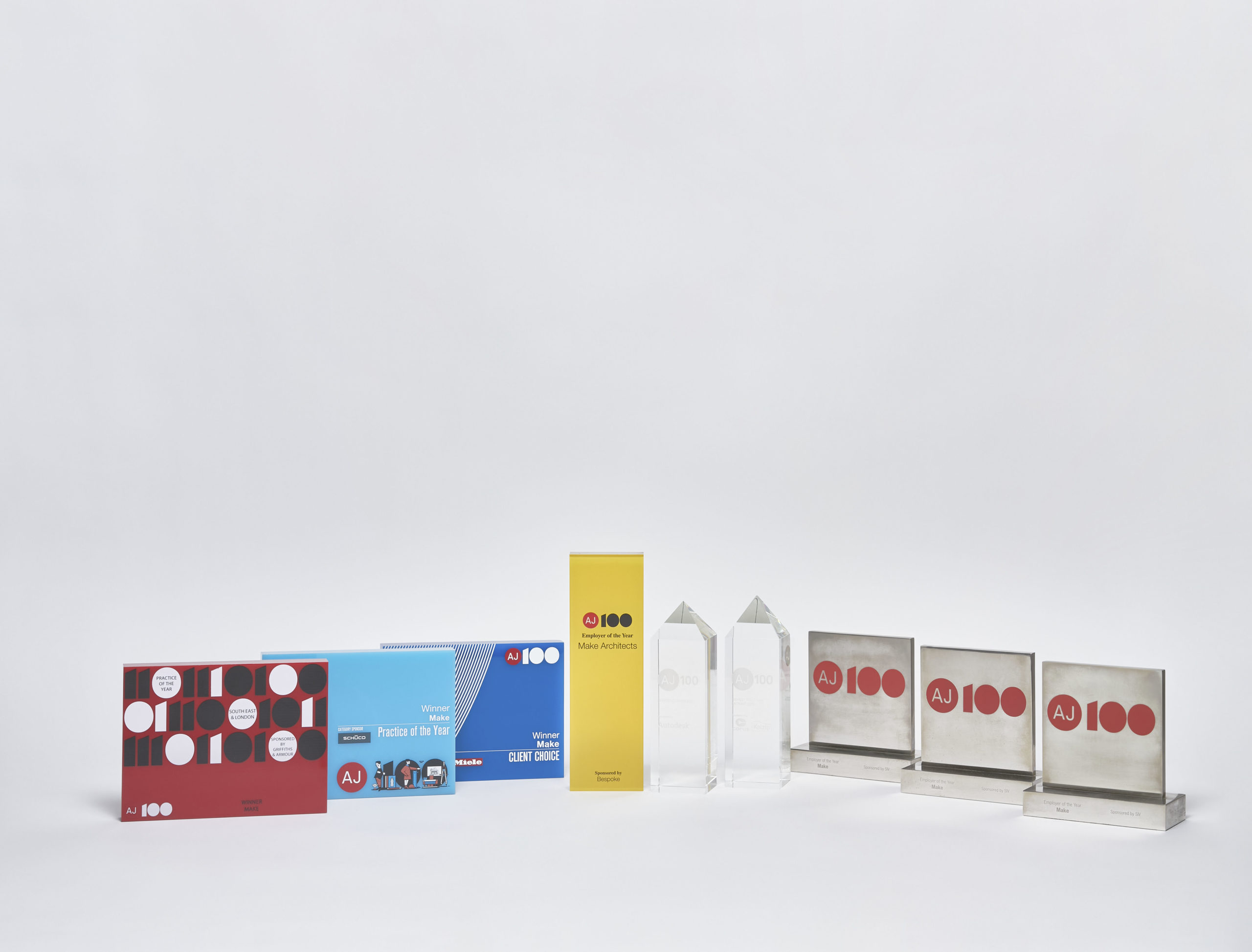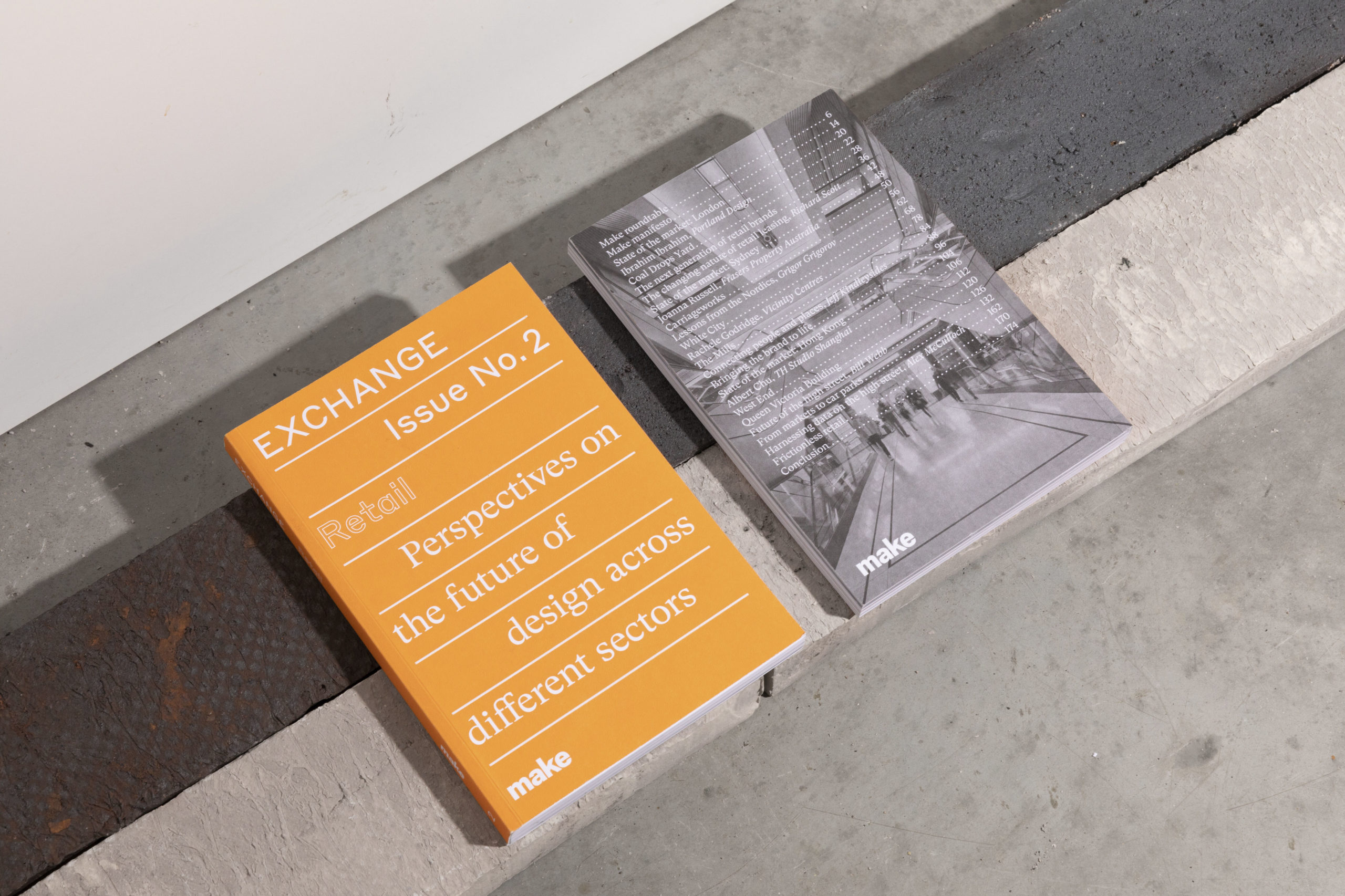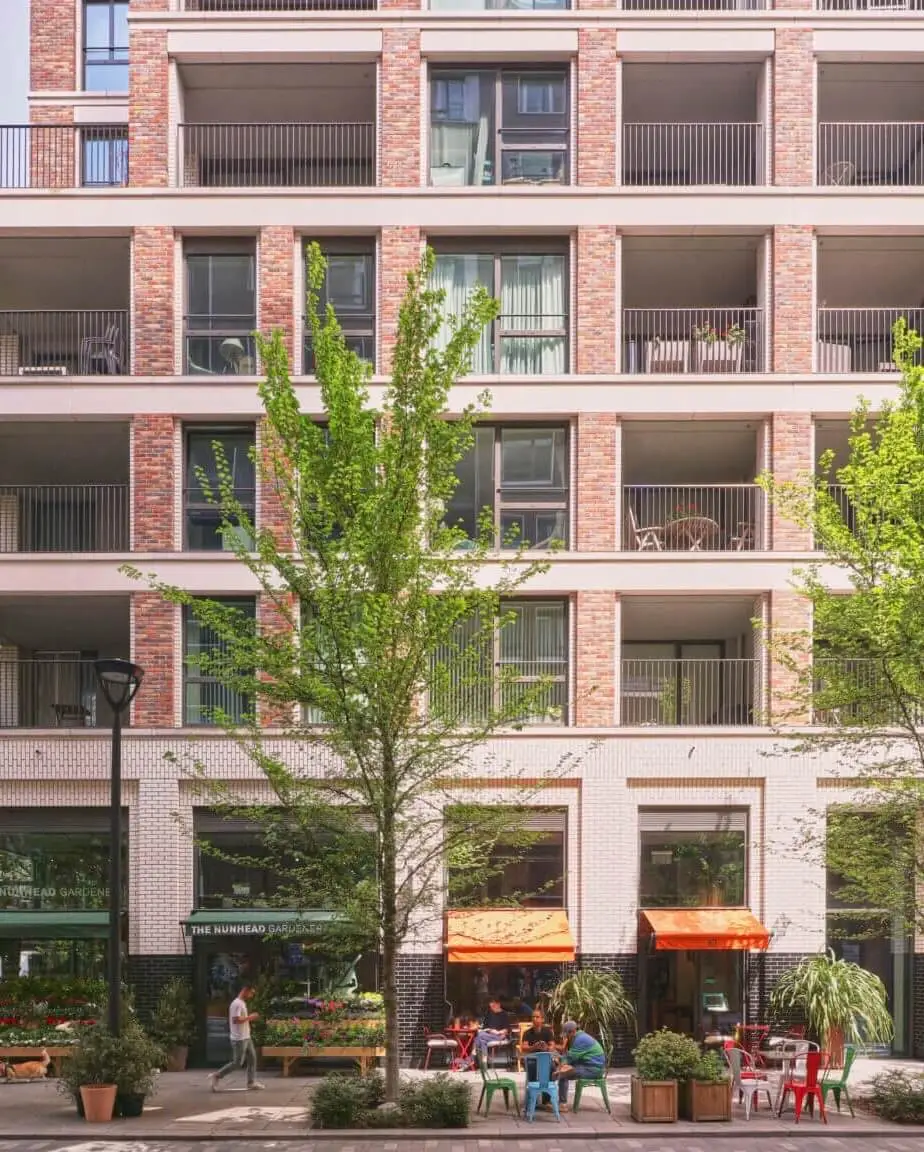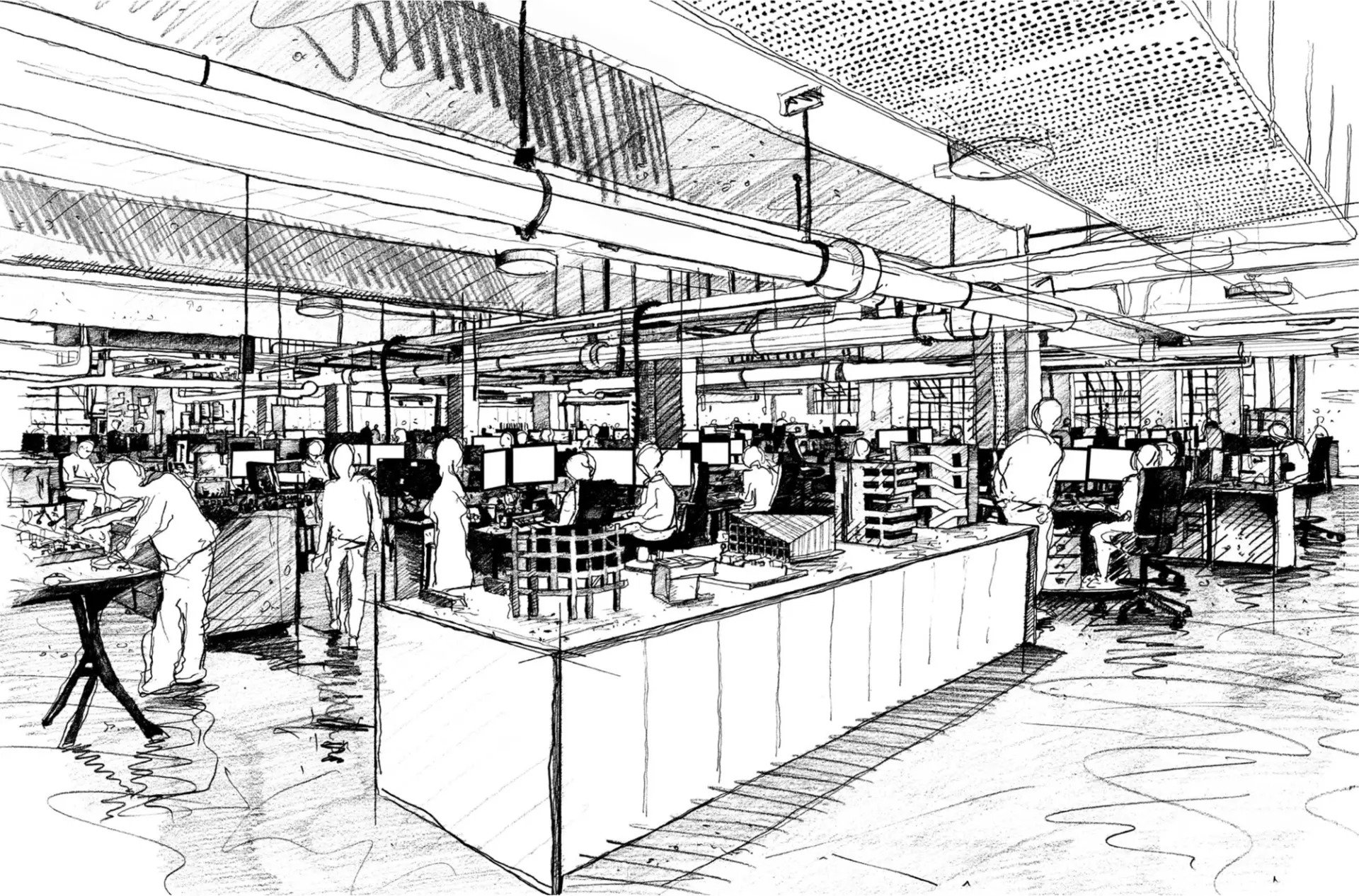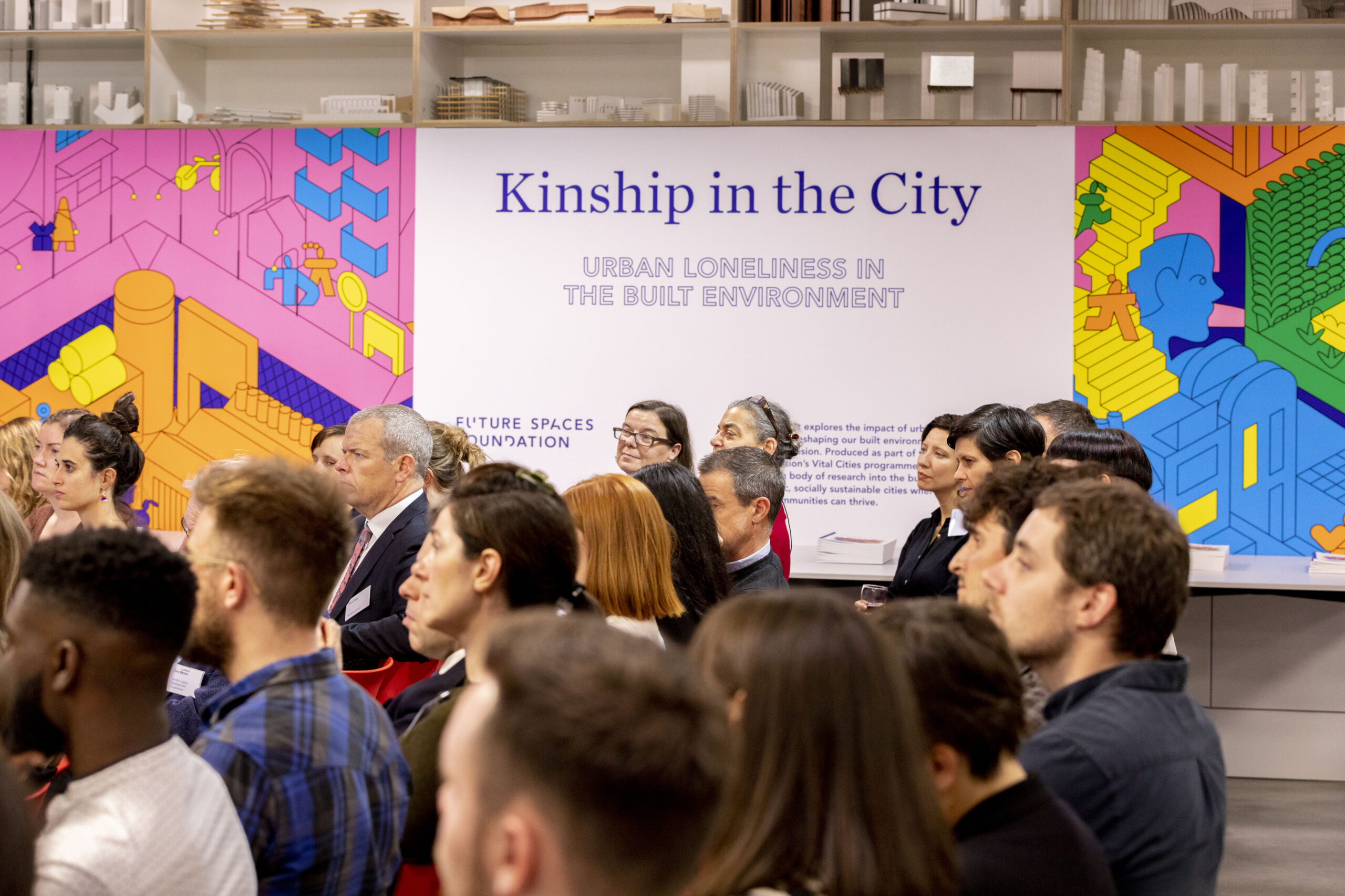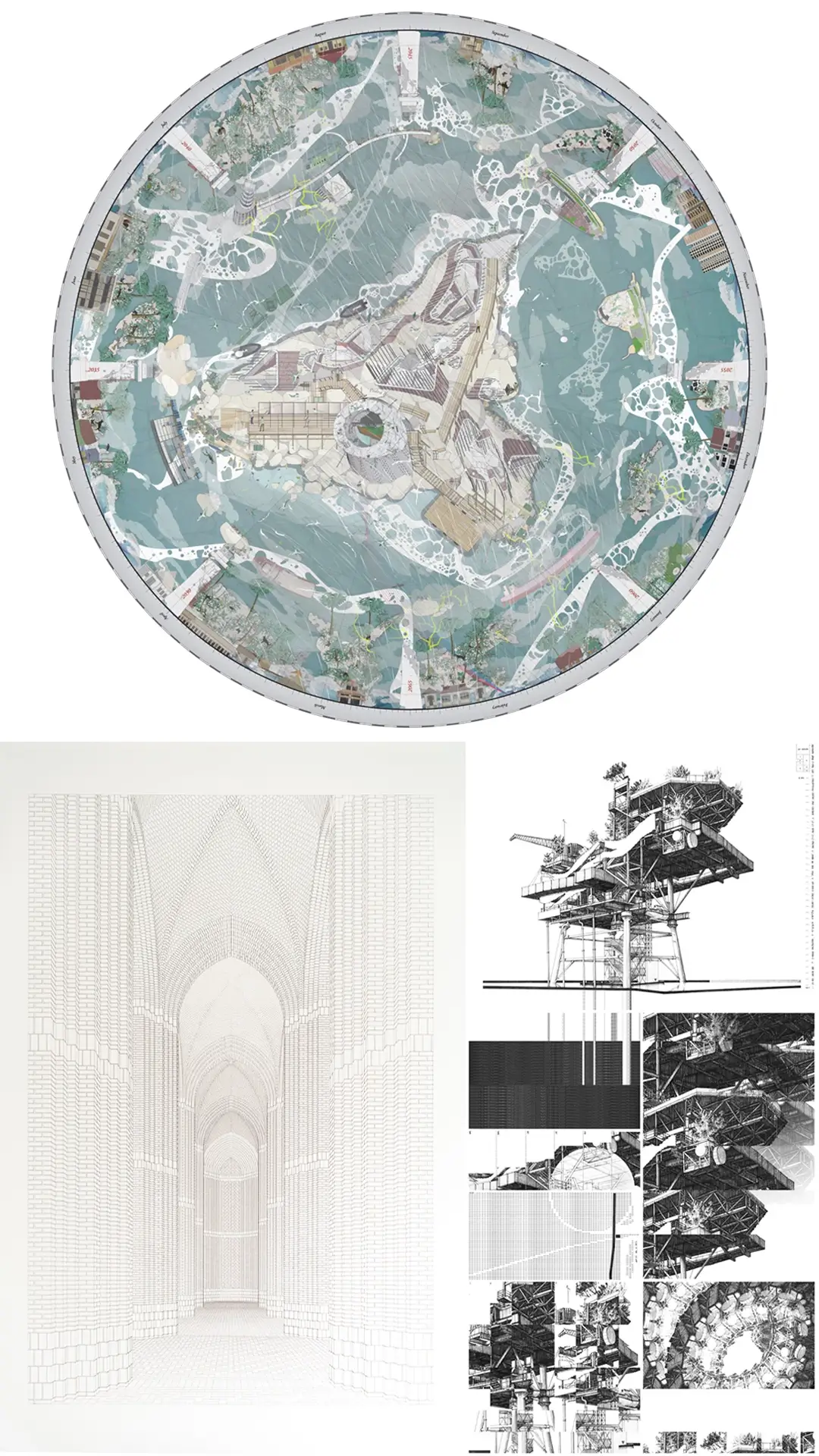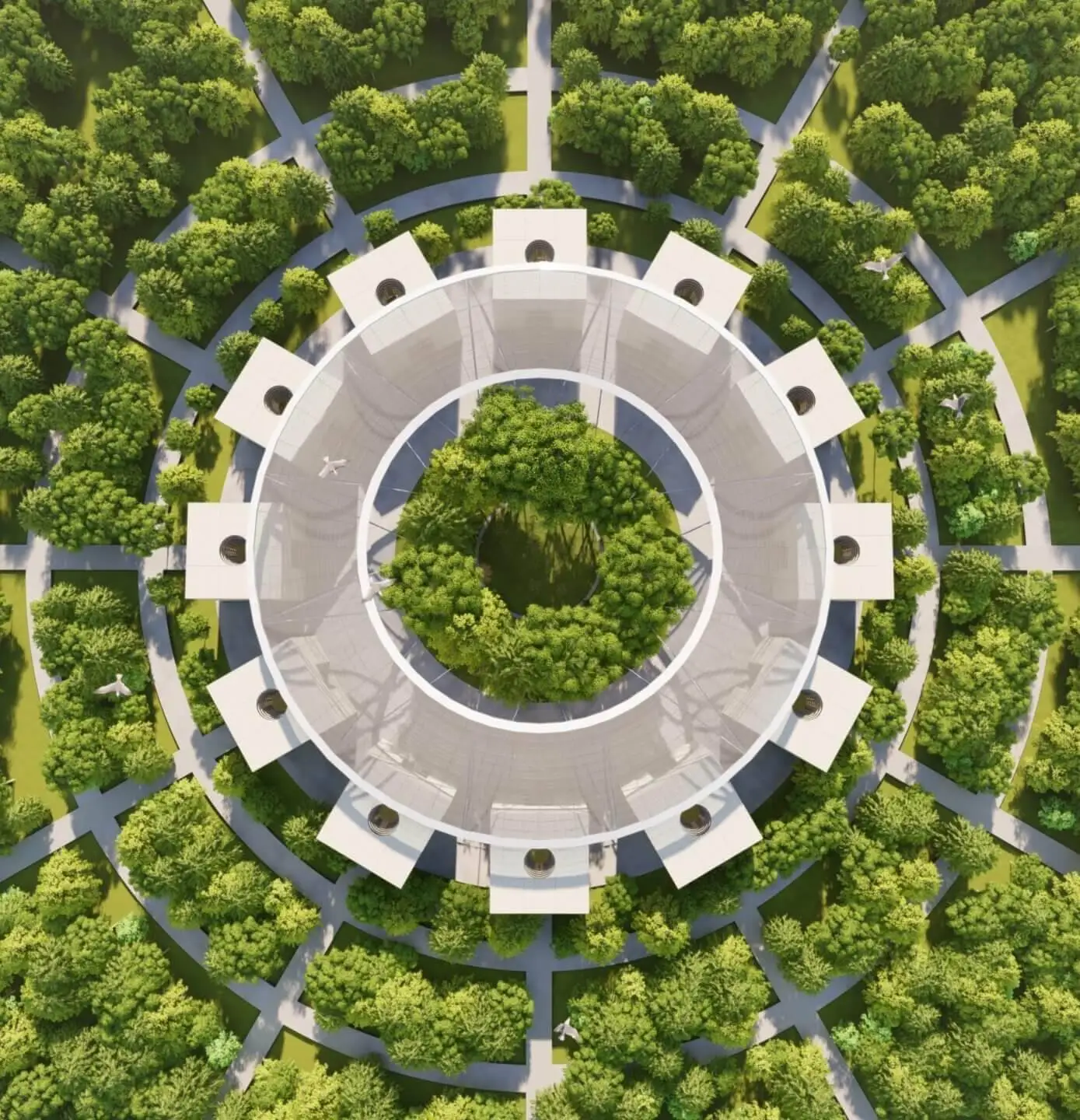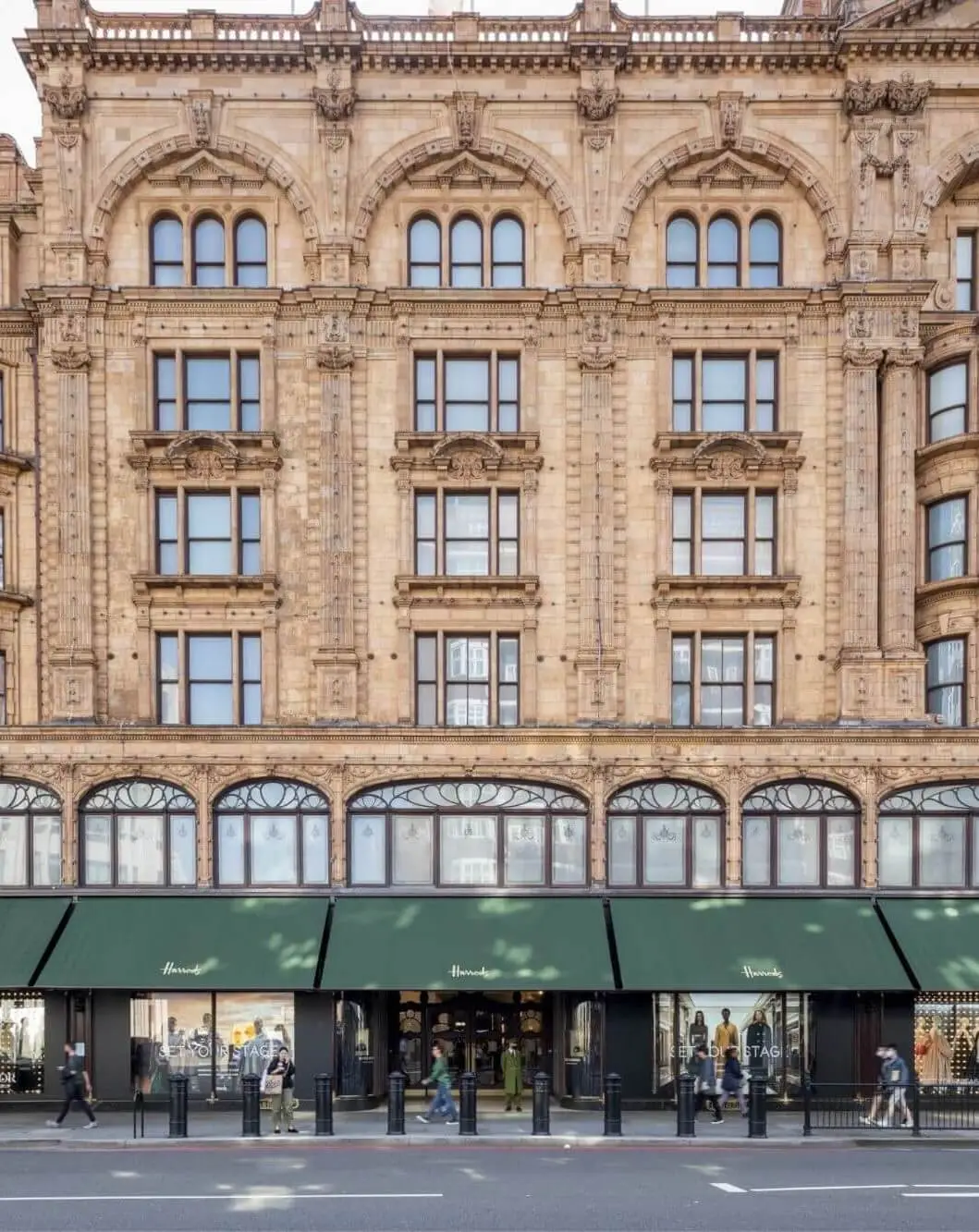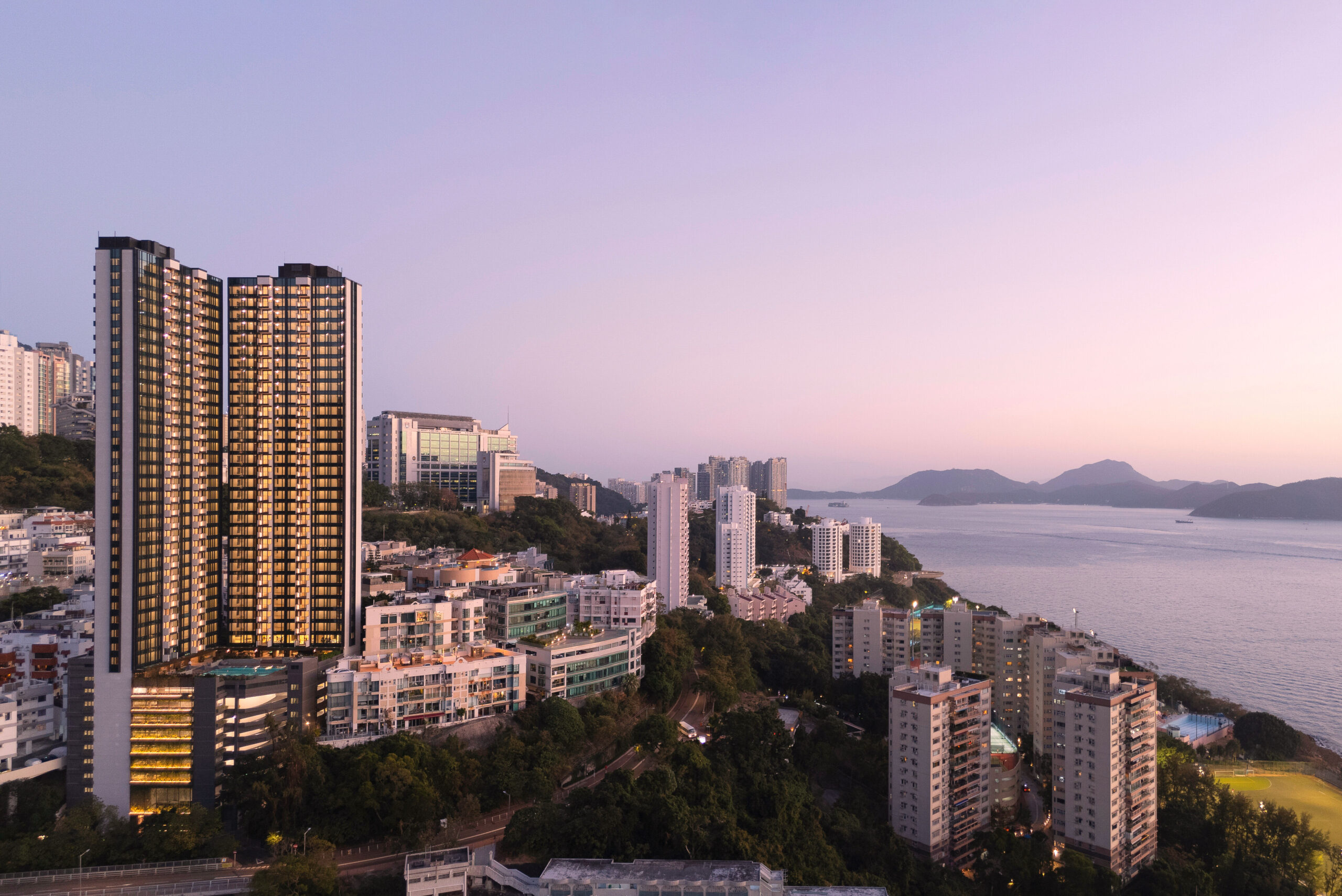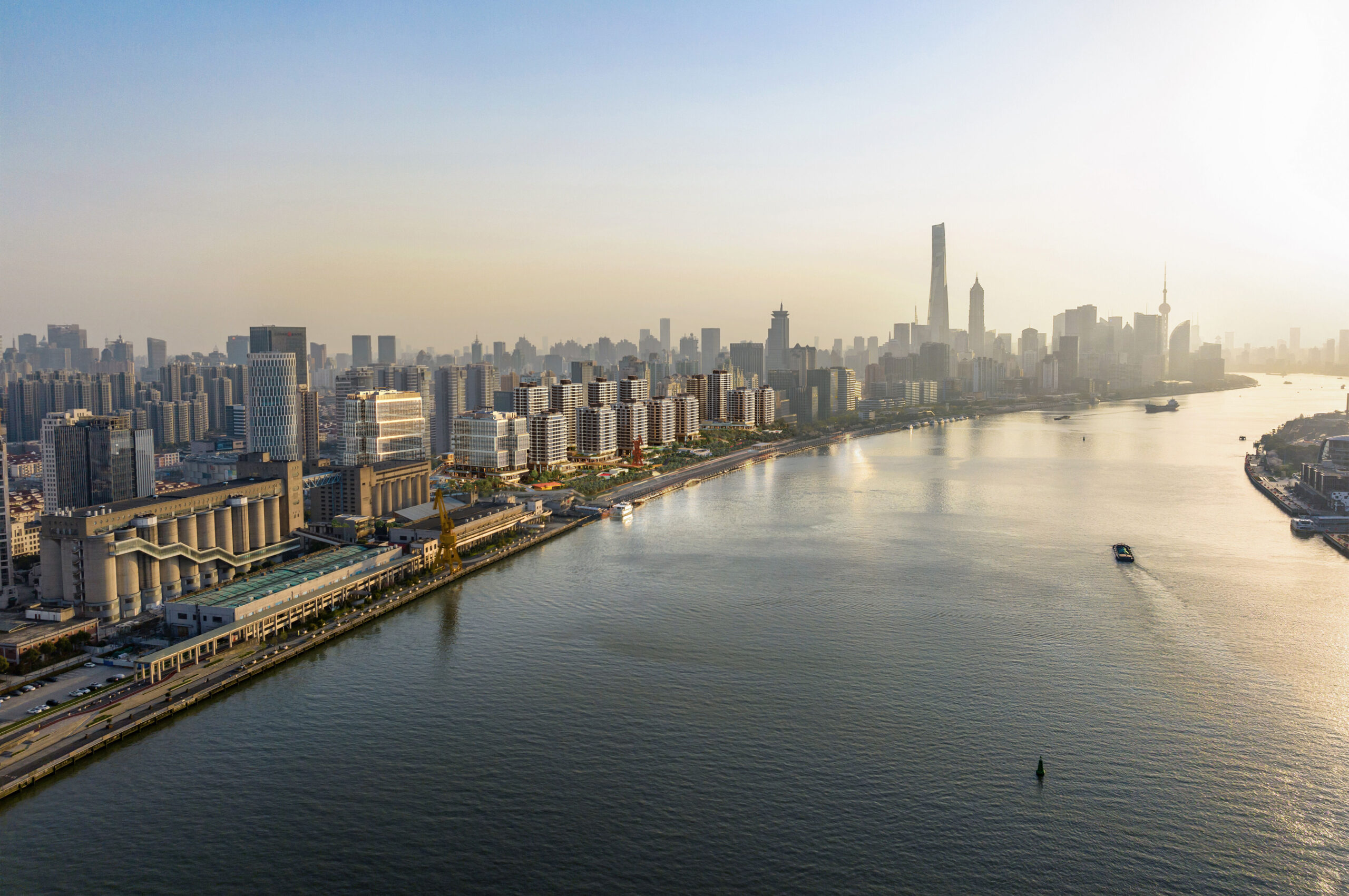
Stuart Fraser, lead architect, said: “There was no silver bullet design feature to help achieve Eden’s low energy rating, it’s all been about marginal gains and holistically integrating sustainable principles into the design, fabric and operation of the building. It was fundamental that this building is as sustainably efficient as possible throughout its life, not just on day one.
We were so thrilled to get the 5.5-star NABERS Design Reviewed Target Rating, which is such a simple and robust system for office developers to really know what their buildings can achieve operationally. Alongside that, we’ve exceeded the UK Green Buildings Council’s 2030–2050 office base-build energy performance target, achieving 43kWh/m2/yr – a high target when compared with the NABERS targets of 55kWh/m2/yr for 5.5 stars and 35kWh/m2/yr for 6 stars – and we’re set to achieve BREEAM Outstanding and WELL Platinum.”

Eden’s most noticeable design feature is its living facade, which covers over 3,300m2 of the building with 32 species of evergreen and perennial planting. Designed in collaboration with living wall specialists Viritopia (formerly ANS Global), this major piece of green infrastructure – the largest living wall in Europe at the time of completion – makes a distinctive contribution to a community short on green spaces. From levels 1–11, each elevation features the living wall, with the only exception being the side core on the west of the building, adjacent to the multi-storey car park.
With over 350,000 plants, the green elevations make a dramatic and unusual addition to the urban realm, easily identifiable when glimpsed obliquely from a distance and within the boundaries of the New Bailey area itself. It adds important urban greening to the local environment and removes air pollutants, lowers urban temperatures and improves biodiversity in Salford.
By providing biophilic health and wellbeing benefits to the occupiers, the facade makes an important contribution to ECF’s aim to embrace the WELL Building Standard principles, which seek to improve human health and wellbeing through design. Large windows are also incorporated into the side core to draw in more natural light and provide a visual connection to the living wall.


The building’s massing was designed with a view to maximising the internal office space over a small building footprint. The extruded side core facilitates large open-plan floorplates from levels 1–11 with uninterrupted internal views, while the rounded north-east corner mirrors the curvature of the Irwell Street gateway, addressing the geometry of this primary route and anchoring Eden as a city marker for this key junction.
The ground floor is set back by 2m, creating a pedestrian-friendly colonnade space and reducing the building massing at the public level. The development has triggered important traffic-calming measures for Irwell Street, reducing the carriageways to accommodate better cycling infrastructure and give more prominence to pedestrians. New rain gardens have also been integrated within the landscaping to intercept surface run-off, channelling rainwater into the drainage system at a reduced rate.


Internally, the double-height ground floor accommodates the building reception and a publicly accessible retail unit. Over 150 cycle spaces have also been incorporated on the ground floor, along with quality changing amenities.
The fully glazed ground floor includes an independently run café open to occupiers and the public. Upstairs on the mezzanine level, a wellness suite provides building tenants with treatment rooms and a flexible, bookable studio space.


Make has taken a utilitarian approach with the internal finishes, exposing soffits, using reclaimed raised access flooring on the office floorplates, and reclaimed sports flooring from the University of Central Lancashire for the lobby and circulation areas. A south-facing roof terrace at level 12 provides outdoor space for tenants, with views across the River Irwell.


Phil Marsden, Managing Director North West for Muse, comments: “Watching Eden emerge on Salford’s skyline over the last two years has been an incredible journey. What started as an ambition to build the UK’s most sustainable and environmentally considerate commercial building became so much more. We take our learnings from Eden onto our future projects where we strive to do even better. Everyone involved in Eden should be incredibly proud.”
Simon Wyatt, Sustainability Partner at Cundall, commented: “When we embarked on this project, the aspiration to make Eden ultra-sustainable with ambitious energy and embodied carbon targets was out of the ordinary. We spent a lot of time working with Make to make sure it was aligned with energy targets and included methodology for how they would be achieved. We also incorporated Muse’s aspirations to meet ESG targets around biodiversity net gain, health and wellbeing, social value, and of course, net zero carbon. The result as we come to completion is a best-in-class development that will be the ‘greenprint’ for the next generation of net zero buildings.”
